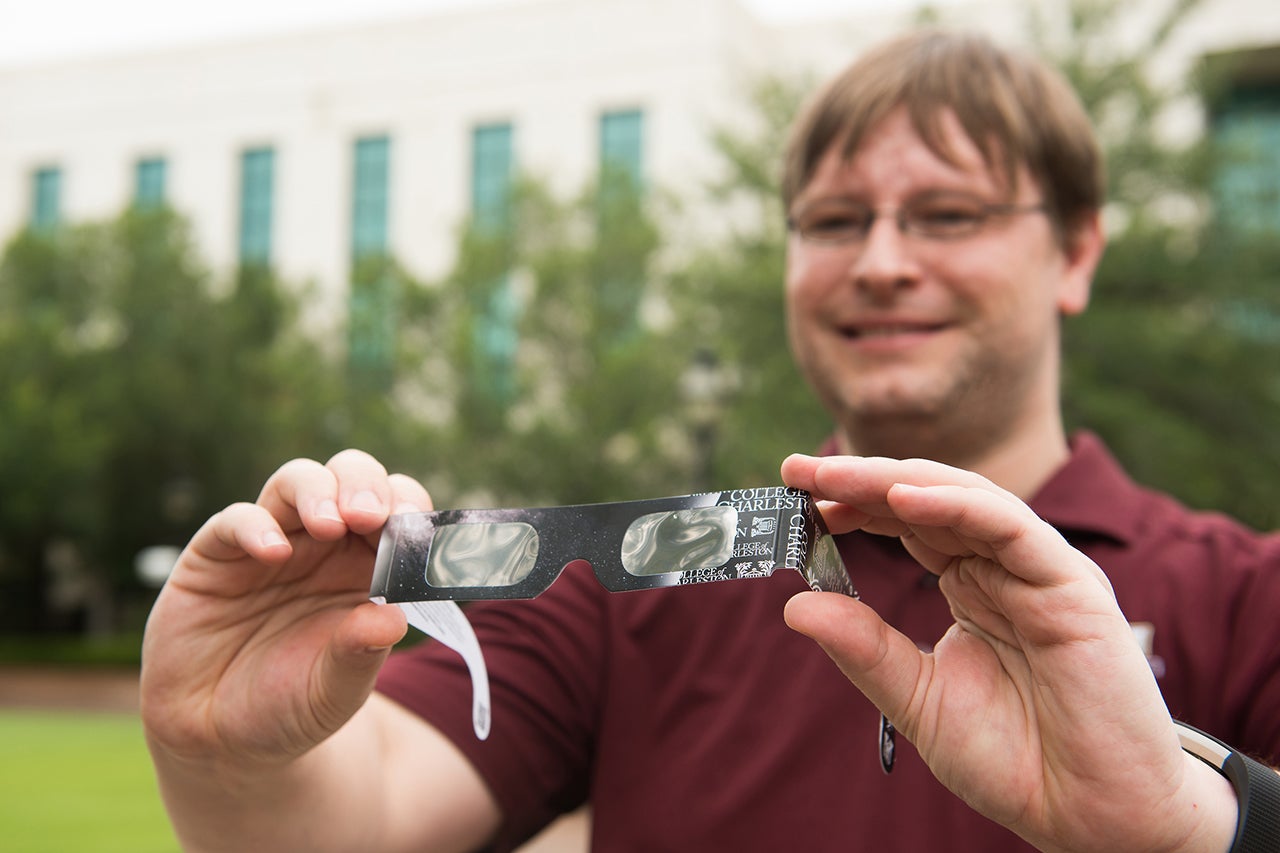For the College of Charleston’s Department of Physics and Astronomy, the upcoming solar eclipse is a big deal. And it’s been a big deal for the better part of this year.
Faculty and students from the department have been visiting sites around the Carolina Lowcountry since the winter, raising awareness about the Aug, 21, 2017, eclipse. Representatives from the department have visited schools, retirement centers, clubs and summer camps. And this summer, they’ll even be speaking to guests at area hotels.
But it’s on the day of the eclipse that the department will really make its mark. At nearly 20 separate sites around Charleston County — from Charles Towne Landing and Joseph P. Riley, Jr. Park to the College’s own campus to parks in Mt. Pleasant, North Charleston and Awendaw — faculty and students from the department will be on hand to guide viewers through the fine points of the eclipse.
“Instead of the community coming to us, we’re going to go to the community,” says Laura Penny, a CofC professor helping to coordinate outreach efforts. “If people want background on the eclipse or information about safe viewing, they’ll be able to come to these sites. We’ll have representatives at these locations for most of the day.”
Penny and her colleagues have worked closely with municipal offices across the county to select these sites and orchestrate this outreach.
“We’ve deliberately chosen sites that are publicly accessible,” she says. “Most of them have parking or can be reached via bicycle, public transportation or by walking, and they also have restroom facilities.”
And why do all this?
“There’s a strong, widely shared conviction in the department that we should conduct outreach regarding astronomy,” Penny explains. “But also, there’s a huge demand for it. People have been coming to our open houses for years; coming to the observatory right on campus. In addition, this eclipse is incredibly rare, so it’s an important astronomical event. We felt an obligation to share as much about it with the public as we could.”
It’s not just Penny who is excited about sharing this phenomenon. A cadre of physics students are also fully engaged. Just ask Lee Netherly, a junior physics major who serves as the outreach chair for the College’s chapter of the Society of Physics Students.
“Back in May several of us gave presentations about the eclipse at 10, maybe 12 middle and elementary schools,” Netherly says. “We also distributed solar glasses that we purchased through a grant that we wrote. It’s a really good opportunity for us to help turn kids onto this area of science.”
Netherly says he doesn’t know at the moment just where he will be stationed on the day of the eclipse, but for him, the venue doesn’t really matter.
“What’s important is that we have this opportunity to share some background on a rare physical phenomenon with the general public,” he says. “I want to make the most of that. I want people to know that physics and astronomy are really intriguing. Years ago, I experienced an angular eclipse, which is very close to a total eclipse. I know firsthand that on August 21, it will get dark enough for you to see the stars during totality.
He adds, “This whole thing will be very cool. It’s a once-in-a-lifetime event, and it’s going to be very busy around Charleston with so many extra people in town. We’re all really looking forward to it.”
Use the interactive map below to see the locations where CofC faculty and students will be on hand for the eclipse.





